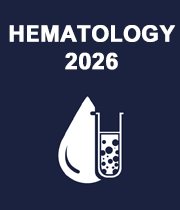New Drug Discovery in Hematology
The study of blood, blood-related organs and tissues (e.g., bone marrow, spleen, and liver), and blood illnesses is known as haematology. Inherited genetic mutations, environmental stressors, and nutritional deficiencies can all cause blood problems. Hemophilia (reduced clotting ability), clotting disorders (predisposition to create blood clots), and blood malignancies (i.e., liquid tumours) such as leukemias, lymphomas, and myelomas are all common haematological illnesses. Because the pharmacological targets of blood disorders are mostly found in the blood, transport and distribution problems are less common than with diseases that affect other parts of the body. Because blood has access to all tissues and organs, this property emphasises the importance of target specificity and constant monitoring of unforeseen consequences. The discovery of novel medications for cancer indications has seen the greatest rapid expansion. The development of tailored medicines for particular patient subgroups characterised by genetic abnormalities is one emphasis in blood drug discovery.



Title : Acute intermittent porphyria: A neurological dilemma obscured by ubiquitous fgastrointestinal presentation
Mayank Anand Singh, Mimer Medical College, India
Title : Comprehensive symptom management and supportive nursing care in a preterm toddler undergoing HSCT for pyruvate kinase deficiency
Tran Thi Dung, Vinmec International Hospital, Vietnam